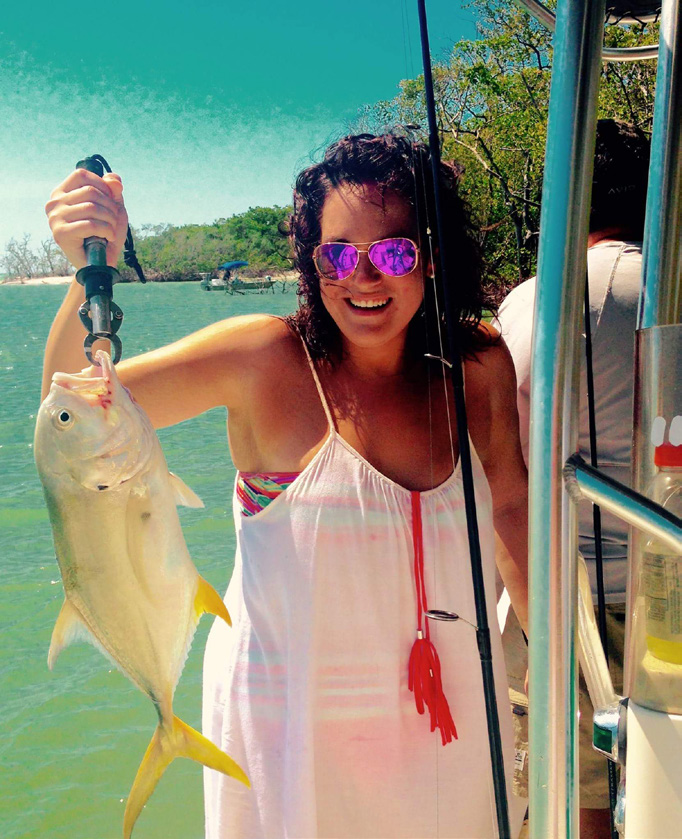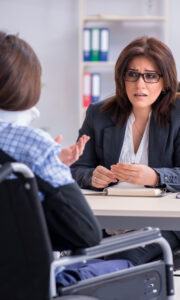IT PAYS TO BE PREPARED
ARE YOU READY FOR HURRICANE SEASON?

It seems that hurricane season came a little earlier than usual this year. For those of you who are like me and make sure to prepare as early as possible, you might be feeling as ready as you can for the storms that lie ahead. But for those of you who might be new to Florida and haven’t experienced hurricanes or need reminders about the best ways to prep, I’m always eager to share knowledge that could potentially save you and your family from some of the hardships these storms can bring.
There’s a lot of planning and prepping that goes into being ready for a hurricane, and even when you’ve checked everything off the list, sometimes, things happen that you just can’t be prepared for. That’s why when notice of an approaching hurricane comes, it’s important for your family to first decide whether you will stay in your home and weather the storm or leave to find better protection.
If you decide to stay, there are many things you should do to make sure your family and your home are as protected as possible. Here are a few basics.
- Stormproof your home. Shutters or plywood can reinforce doors and windows and prevent broken glass.
- Purchase a backup generator and make sure it’s functioning properly and that you have a supply of gas.
- Stock up on enough food and water to last your family at least five days, and make sure at least half of it is non-perishable and doesn’t need to be refrigerated or cooked.
- Have cash on hand, as ATMs and banks could be closed for days.
- Your basic emergency supply kit should consist of batteries, flashlights, a toolkit and repair supplies, portable radios, and a first aid kit.
- Keep a supply of sandbags somewhere accessible so you can divert rushing water away from your house.
The right supplies to weather a storm are key, but it’s also important to make sure you have all your affairs in order. Whether you own or rent, make sure your insurance covers hurricane damage. Keep all of your important documents like birth certificates, passports, and Social Security cards in
a safe and dry place. Although it can be difficult to think about, it’s also important to make sure your estate plan is properly documented should something happen to you during the hurricane.
I’ve lived in Florida for a long time and have been through my share of hurricanes. The most important thing I’ve learned is that there’s no such thing as overpreparing and no such thing as preparing too early. Every time I’m at a big-box store like Costco, I always buy an extra case of essential supplies, like bottled water or canned foods, to put in my family’s designated hurricane closet. That way, when the time comes, we don’t have to worry about beating the rush of people trying to prepare last minute. Keeping everything in a closet dedicated solely to hurricane supplies makes it that much easier to find things when we need them most. When it comes to hurricanes, it pays to think far, far ahead.
The Whisler Law Firm’s website is a great resource for all the things you need to know about how to prepare for a hurricane. If you visit whislerlawfirm.com/hurricane-resource you’ll find extended lists of recommended supplies, actionable checklists, financial and personal preparedness toolkits, advice gathered from longtime Florida residents, and even an entire free eBook about hurricanes and how to prepare for them. We’re all about helping our community, and that means doing what we can to keep people safe. So make sure you visit our site and reach out if you have any questions. We’re here to help.
– Josh Whisler
MEET ANDREA FRANKLIN
THE NEWEST ATTORNEY TO JOIN OUR TEAM

The Whisler Law Firm continues to expand its team of experts in an effort to keep serving those who come to us for help, and now, we’re excited to welcome Andrea Franklin as the newest attorney to join our team!
Andrea started with our firm at the beginning of August and (like we knew she would) has already proven to be a valuable addition, thanks in part to her unique background. “For the previous four years, I had been working on the other side of the table as an attorney for an insurance company to defend them against property claims,” Andrea says. “Representing the insurance companies was never meant to be my endgame but instead gave me valuable insight and knowledge. I always knew I’d leave the bureaucracy to finally get my boots on the ground and represent the people.”
As someone who was born and raised in South Florida and has never moved out of state, Andrea is all about doing good for the place she will always call home. “I want to represent my neighbors and help them through the tough pockets of their lives they can’t navigate by themselves. That’s what we’re here to do, and I’m so excited to finally represent the community I grew up in and am a part of.”
Andrea’s sense of community appreciation extends far beyond her work. In 2016, after a close veteran friend of hers served two tours in Afghanistan and Iraq, he came to her with the idea of doing something more for his fellow veterans. His love of fishing coupled with Andrea’s eager enthusiasm led to the creation of Overseas Fishing, Inc., a 501(c)(3) organization that takes local veterans out on fishing trips as a means of building connections and participating in therapeutic activities. “I’ve always loved being out on the water, and it’s incredible to witness how truly therapeutic the ocean and fishing can be for people who have been through life-altering situations,” Andrea explains.
It may be Andrea’s inside knowledge of the insurance world that first drew our attention to her, but it’s her passion for our community and the desire to support
its members that have truly made her a valuable member of our team already.
DON’T HURT YOUR PERSONAL INJURY CASE
FOLLOW THESE GUIDELINES FOR SPEAKING WITH INSURANCE ADJUSTERS
If you’re injured in an accident and file a personal injury claim, the responsible party’s insurer will likely call you soon after the accident is reported. These first conversations can be critical to making your case and must be navigated with caution. Although insurance adjusters seem like they want to be your friend, their job is to diminish their client’s liability and leave you with little to no compensation. That’s why it’s so important to follow these guiding principles.
Stay calm and polite.
You have every right to be angry about your accident and injuries, but taking your anger out on an insurance adjuster won’t help you win compensation. Most personal injury cases settle out of court, so sooner or later, you’ll be negotiating with the insurance company. Adjusters are humans too and don’t respond kindly to abuse, so it’s best to avoid losing your temper or placing blame on the adjuster. Your goodwill toward them could be returned to you and pay off.
Don’t get into details.
Less is best. You don’t need to share any personal information other than your name, address, and telephone number. They may ask you to give a statement about how the accident happened, but politely decline discussion of facts and instead give them only the basics: where, when, the type of accident, and those involved. Tell them the accident is still being investigated and that detailed facts can be discussed at a later time.
Don’t finalize your injuries.
The adjuster will want to know about your injuries, but you shouldn’t give them a detailed description yet. You may discover a new injury later, or your injuries may worsen. Until you know more, give only a general description, for example, “My leg is broken and I have neck and back pain.” You also don’t have to tell them what doctors or other medical providers you’re seeing.
The general rule of thumb when you speak to any insurance adjuster is to be polite but say little. A lawyer can also speak with adjusters on your behalf, so if you’ve suffered a personal injury, give our office a call, and we’ll see how we can help.




